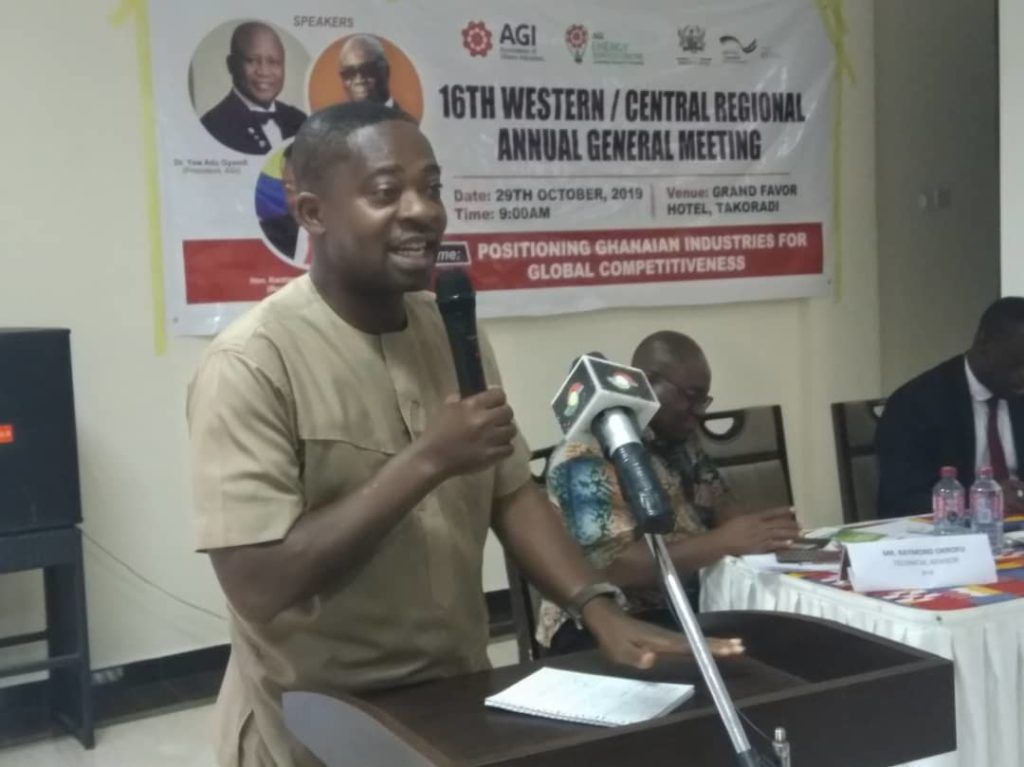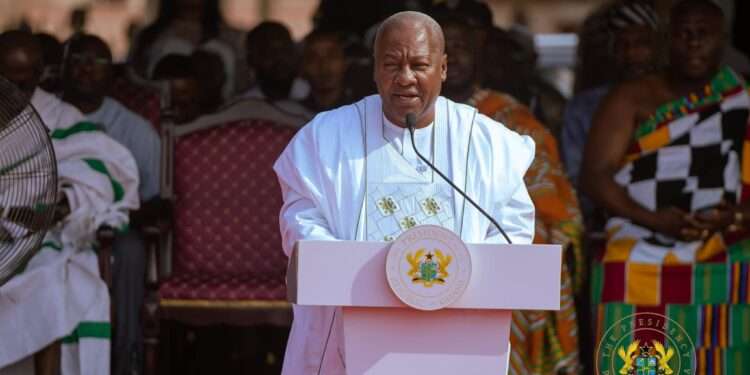The Ghana Union of Traders Association (GUTA) and the Association of Ghana Industries (AGI) have stated that the prime bane of businesses in the country at the moment is the closure of the country’s borders.
According to the associations, businesses and economic activities in the country will not be as they were pre-COVID-19 even if all the present COVID-19 restrictions are lifted.
President of GUTA, Dr Joseph Obeng in an interview asserted that, the present dynamics of business activities cannot change much as long as the country’s borders remain closed. This according to him is because most of their members are importers.
“For majority of our members who ply their trade outside our shores, they cannot travel because flight restrictions remain in force; so the partial relaxation of restrictions will have no impact at all on traders whatsoever.”
Dr Joseph Obeng
Dr Obeng intimated that, the partial lifting of restrictions will boost the activities of some businesses especially those who deal in garments. He, however, maintains his position that,
“Ghana is not an island; we are part of the whole and so once flights are not coming and going, international trade is affected.”

Reiterating the above concerns, the Chief Executive Officer (CEO) of the AGI, Mr Seth Twum- Akwaboah, has also pointed out that, the nature of business activities makes it difficult for them to operate.
“Almost all businesses relate to events. The restrictions have been partially lifted, but the country’s borders remain closed, you cannot travel outside, investors cannot come in as they used to so the situation is largely unchanged”.
Mr Seth Twum- Akwaboah
He also intimated that, the fact that 100 people are now allowed to be present at funerals instead of the previous 25 suggests that, “the numbers have gone up and so for catering services, instead of the initial 25 people, they can expect some level of improvement.”
However, the CEO of the AGI cautions that
“even though the numbers have increased, it does not reflect an immediate boom in economic activity.”

Mr Twum-Akwaboah has said elsewhere that, the about 2000 businesses under the association he leads are struggling to survive as their revenues have nose-dived.
“This is serious. Our members cut across twenty-three different sectors especially those in the hospitality and manufacturing sectors who are having various challenges. All of them are facing it in one way or the other. Unfortunately, we don’t have figures to show the revenue loss, but I can tell it is very troubling.”
Mr Seth Twum- Akwaboah
Even before the full scope of the negative impact of COVID-19 is realised, an assessment of Ghana’s tourism and hospitality industry, between March and June, has revealed that, both formal and informal operators in the sector are to lose about $171 million because of the pandemic.
Prior to the onset of COVID-19, tourism and the hospitality sector were projected to create about a million jobs, while contributing about 6.2 percent to Ghana’s GDP.
Mr Twum-Akwaboah insists that, regardless of the partial ease of restrictions,
“We still have a long way to go, as long as the borders remain closed and we don’t have a lot of international visitors coming in, hoteliers will continue to suffer.”
However, he agreed that the current flow of internal movement augurs well for players in the industry. This is because people are moving from Accra to Kumasi and Takoradi and vice versa fluidly.

But, the immediate past President of the Ghana Hotels Association, Mr Herbert Acquaye, has pointed out that these movements will not have any significant impact on their operations.
“The local market is very weak as there isn’t much movement and most companies are having virtual conferences. Annual General Meetings (AGMs) are virtual, everything has become virtual so there isn’t much movement to allow the use of hotels.
Mr Herbert Acquaye
“Until we reach the threshold where we can open up like the way America has opened up, we are stuck… that is why America didn’t open up face out like this and limit people and say ok only for 100 people; they opened up. Because if you want to open up the economy we can open up this way and feel that industry will be able to benefit.”
For many hotels though, it makes a lot of sense for them to be cautious about reopening as a few customers or extremely low occupancy rate cannot meet their fixed costs.
Reports, however, suggests that some hotels in Accra are reviewing their business models to remain afloat during this period as they are yet to make gains after the partial easing of COVID-19 restrictions.
The manufacturing sector has also been hit hard as the wind in its sails has been muffled.
The absence of funerals, weddings, naming ceremonies, amongst other social events has impacted the beverage industry significantly.
“You need to have the weddings, the funerals and other big events, to keep the manufacturers in business, but with the restrictions, the volumes reduced drastically and not even the partial lifting is able to restore the numbers; this is because churches cannot have big conventions, people cannot have big parties or weddings.
-Mr Herbert Acquaye
“Pharmaceutical products are essentials and so demand for them has remained high, but for those in the food and beverage industry most of which depend on large social events and to thrive, their volumes have come down.”
Estate developers within the construction sector which contributes 14.2 percent to the country’s GDP are also seeking support from government to prevent job losses.





















